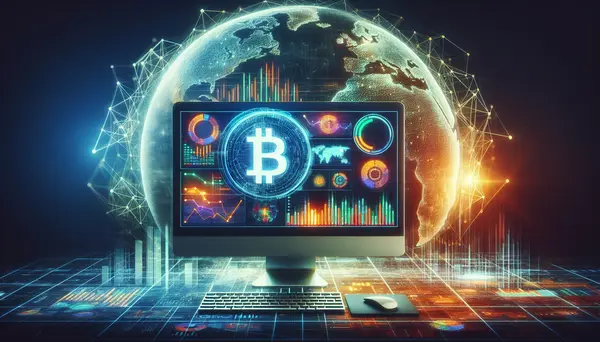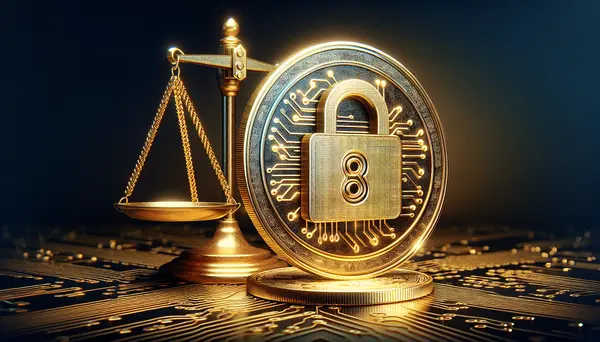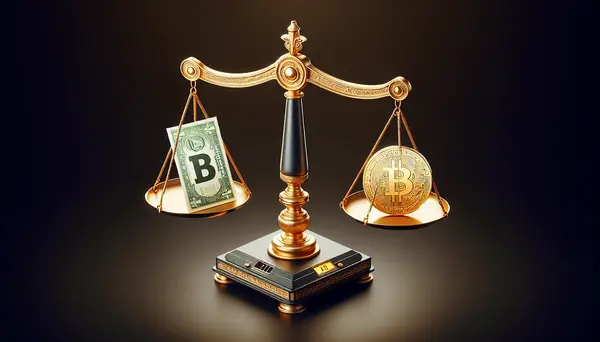- Cryptocurrencies can enhance transparency and traceability of public funds, making it harder for corrupt activities to go unnoticed.
- Smart contracts on blockchain technology can automate and enforce transactions, reducing the human discretion that often leads to corruption.
- The decentralized nature of cryptocurrencies can bypass centralized control, limiting the potential for embezzlement or misappropriation of funds.
You know, I've been thinking a lot lately about how cryptocurrencies could potentially impact corruption in public finance. It struck me that maybe, with their decentralized and transparent nature, they could perhaps make shady dealings and under-the-table transactions a bit more difficult. I mean, everything's fully logged and transactions can't really be altered or hidden, right? Plus, there's no one 'in charge' per se, like a government body or bank, who could potentially partake in corrupt behaviour. But then again, I also realise that crypto has its own problems and pitfalls. What do you guys reckon? Could cryptocurrencies actually help to cut back on corruption in public finance, or is the potential misuse of crypto itself just as concerning?
Definitely, the anonymity aspect of crypto can be a double-edged sword. While it helps keep transactions private, it can also enable unscrupulous activities. We'd need some form of regulation or control to prevent misuse while reaping the anti-corruption benefits, don't you think?
Well, isn't it also possible that the very features of crypto that could combat corruption might also potentially enable it? Just a thought.
Well dang, with all this chat about crypto, maybe it's time to swap my piggy bank for a digital wallet!
A point that hasn't been touched on yet is the accessibility of cryptocurrencies. Technically, anyone with an internet connection can partake in this crypto economy, which could serve to democratise public finances. Yet, this also raises the question of digital literacy and accessibility. What do you think about this angle? Can looking at education and digital access as foundational to this issue bring us a step closer to a possible solution?
Ever thought about the energy consumption of crypto? How sustainable is it in the long run?
What about the notorious volatility of cryptocurrencies? Could that unpredictability impact its potential use in public finance?
Can we trust crypto considering its decentralized nature?
I know we're all neck-deep into the crypto stuff, but what about the risk versus return aspect? Are the potential risks in terms of financial security, cyber threats, etc. worth the potential transparency that it offers? I mean, crypto is pretty much like the wild west of the financial world, at least currently. What's your say on that?
I'm intrigued by the finesse of blockchain technology behind cryptocurrencies. It's fascinating how it could bring about data integrity and security on an unparalleled scale. If harnessed properly, we could see a radical shift in how public finance is managed, creating a much-needed transparent and tamper-proof system. However, the wide-scale adoption of this technology in public finance circles would certainly require well-thought-out regulation and public acceptance. It's a brave new frontier, guys! With its own challenges and opportunities. What does everyone think, though? Is a blockchain-based system just an idealistic dream, or could it be a reality in the future?
What if crypto's bubble bursts though, like some are predicting? Could be a total game changer for public finance, right? Or a complete disaster... Thoughts?
Just to throw this out there - maybe it\'s not a question of 'if' but 'how' we utilize crypto in public finance. It's about finding a balance that minimizes the risks while maximizing the potential benefits. Easier said than done, I know! But worth considering maybe?
Alright, this may be coming out of the left field, but what if we think about the intersection of cryptocurrencies and artificial intelligence? Could AI models predict the volatility of cryptocurrencies to reduce potential risks? Maybe AI can provide some safeguards or even improve the efficiency of transactions. Maybe I'm just rambling here, but I'm intrigued to know your thoughts. Could something like AI be part of the solution, or am I barking up the wrong tree here?
What if it's a red herring? Corruption might just find a new way around it. Underestimating the adaptability of corruption could be a big mistake. Just food for thought.
Keep an eye on global regulations shaping up. They might influence the whole crypto-corruption dynamic significantly.
If crypto can sort public finance corruption, I'll eat my computer - silicon and all!
Look into how specific countries are using crypto in their public sectors already. There might be real-world examples out there that provide a clearer picture of its effectiveness in combating corruption.
- How does a 51% attack on a blockchain network work? 4
- Can you explain the concept of order flow imbalance and how it can be utilized in cryptocurrency trading? 4
- Are there any risks involved in trading cryptocurrencies, and how can I mitigate them? 4
- What are the potential benefits of adopting cryptocurrency for small businesses? 9
- How do you store your cryptocurrencies? 8
- Can you explain the concept of support and resistance levels in cryptocurrency trading? 3
- How is cryptocurrency adoption influencing the banking and finance industry? 4
- What are the top five cryptocurrency wallets in 2023 and why? 8
- Can anyone explain the principles of technical analysis in cryptocurrency trading? 7
- How does the legality of crypto trading vary around the world? 4
- How do the privacy features of Monero differ from other cryptocurrencies? 4421
- Can you recommend any trading bots or automated tools for cryptocurrency trading? 3115
- How does a 51% attack on a blockchain network work? 2781
- What's the role of Gas in the Ethereum network? 2354
- How can one identify and avoid crypto scams and Ponzi schemes? 1340
- How can cryptocurrencies be used to empower individuals in unbanked or underbanked regions? 1258
- What's the significance of Bitcoin's 21 million coin limit? 972
- Can a crypto wallet be legally inherited? 935
- What are the legal implications of holding cryptocurrencies in country X? 888
- What are some legal strategies to minimize taxes on crypto investments? 883

We have compared the best crypto exchanges for you. Just take a look at our free crypto exchange provider comparison.

We have compared the leading crypto tax tool providers for you. Check out our free crypto tax tool provider comparison.
The Best Bitcoin Mining Providers at a Glance
» Infinity HashFrom our perspective, currently the best mining provider on the market. With the community concept, you participate in a mining pool completely managed by professionals. A portion of the earnings are used for expansion and maintenance. We've never seen this solved as cleanly anywhere else.
» Hashing24A well-known and established cloud hosting company. With a good entry point and in a good market phase, a good ROI can also be generated with some patience. Unfortunately, we see the durations as a major drawback.
Blog Posts | Current

Top 10 ICOs to Watch in 2023
Collateral Network (COLT) Collateral Network (COLT) is a next-generation decentralized lending platform that leverages blockchain technology to facilitate secure and efficient...

Mastering Technical Analysis for Bitcoin Trading
Introduction to Technical Analysis for Bitcoin Trading Trading in the cryptocurrency world, particularly Bitcoin, requires careful decision-making and strategic planning. One...

Blockchain's Influence on the Automotive Industry
Introduction: Unveiling the Power of Blockchain Blockchain technology is boldly advancing into a variety of industries, utterly transforming our occasional transactions...

Understanding ICOs: Risks, Rewards, and Regulations
Introduction to ICOs Initial Coin Offerings, often shortened to ICOs, are an increasingly popular method of fundraising for new projects in...

ICO vs IPO: Which is the Better Investment?
Introduction: Understanding ICO and IPO Before delving into the difference between ICO and IPO, it's crucial to understand what these terms...

Bitcoin's Rise and Fall: Historical Analysis
Introduction: Bitcoin's Dynamic Journey Bitcoin, the world's first and most recognized digital currency, is often the subject of dramatic headlines, featuring...

How to Build a Diversified Crypto Portfolio: A Step-By-Step Guide
Introduction: The Importance of Diversification Investing in cryptocurrencies can be both exciting and rewarding. However, it's crucial to remember that the...

Blockchain's Potential Beyond Cryptocurrency
Introduction: Blockchain's Potential Beyond Cryptocurrency When we hear the term "blockchain," most of us instinctively think of cryptocurrencies like Bitcoin and...

Investment Tips for the Budding Crypto Millionaire
Introduction: An Insight into Crypto Investment If you're venturing into the promising world of cryptocurrencies, a solid investment strategy can be...

The Role of Cryptocurrencies in Venture Capital: A New Frontier
Introduction - Understanding Cryptocurrencies and Venture Capital As technology evolves, so does our understanding of what makes a valuable asset. The...
